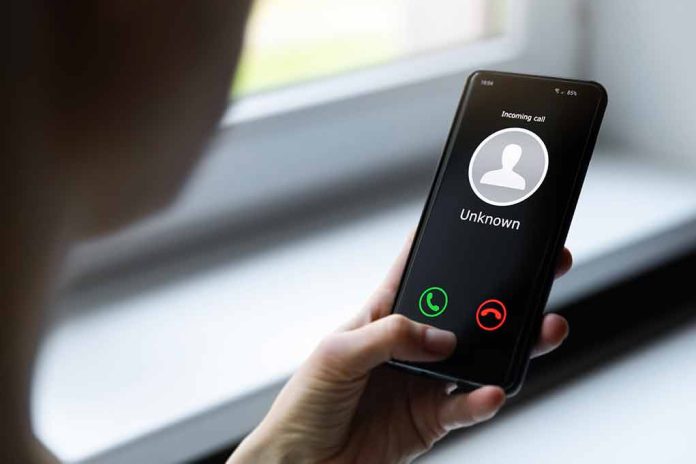
Nationwide phone scams impersonating government officials are on the rise, leaving many wondering how to counteract these cunning deceptions.
At a Glance
- Scammers impersonate U.S. Marshals and FBI officials to steal funds.
- Victims are often instructed to make payments via Bitcoin ATMs.
- Fraudsters use caller ID spoofing to appear credible.
- The FBI and USMS encourage victims to report scams for investigation.
Scammers Pose as Government Officials
The U.S. Marshals Service (USMS) and FBI have issued warnings about a surge in imposter scams involving criminals posing as law enforcement officers. Fraudsters claim to be U.S. Marshals or court officers and attempt to extort money by threatening arrest for alleged infractions like identity theft or ignoring jury duty.
Scammers rely on sophisticated tactics, including providing fake badge numbers or using the names of real officials. New strategies even involve impersonating Customs and Border Protection officers, alleging victims have packages with illegal substances.
Victims Driven to Immediate Action
Victims are often told to make urgent payments via cryptocurrency, specifically Bitcoin ATMs or prepaid cards. This method is favored due to the anonymity it provides, making it difficult for law enforcement to trace the transactions.
Scammers re-contact victims posing as different officials, offering legal services or payment options. In some cases, victims are requested to withdraw a sizable portion of their assets, deposit it into a digital wallet, and are falsely promised a return after compliance.
The Fight Against Phone Scams
The FBI’s Internet Crime Complaint Center (IC3) reports over $37 billion has been lost to cyber-enabled crimes since 2019, a significant proportion attributed to such scams. The IC3 assists in understanding threats, investigating crimes, and tracking trends, potentially leading to the recovery of stolen funds.





